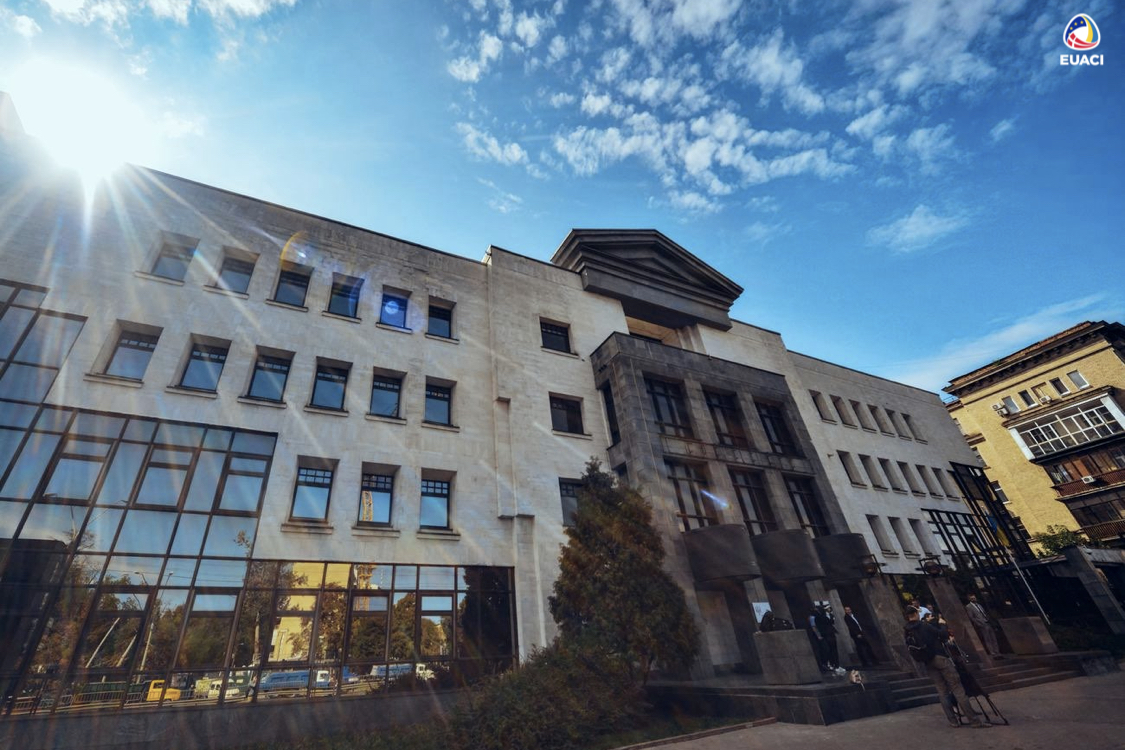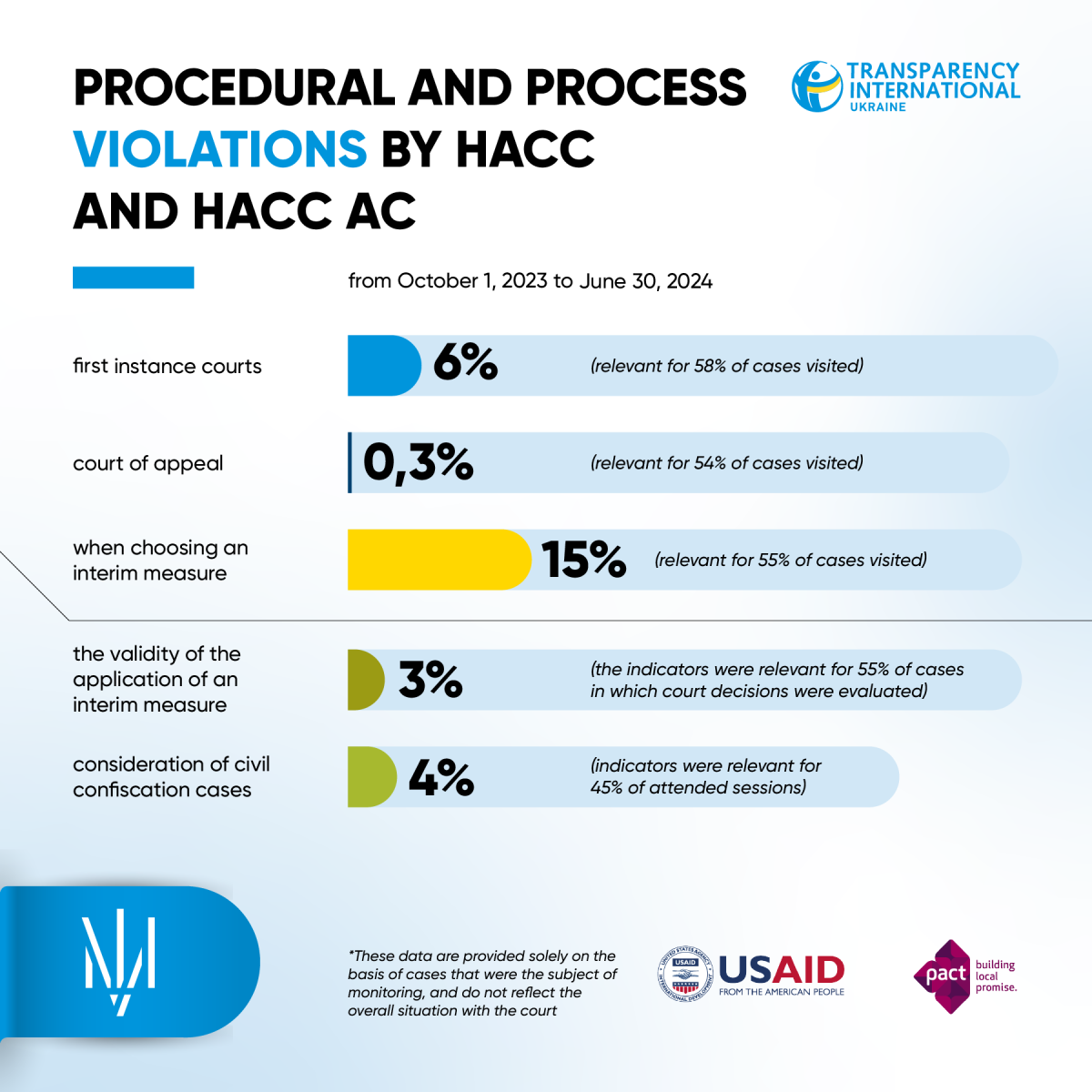

New data from Transparency International Ukraine’s report on the monitoring of HACC operations highlight several factors that slow down or even undermine the process of adjudicating corruption cases in court.
On October 29, Transparency International Ukraine presented a report detailing the results of the fifth stage of monitoring the HACC’s work, covering the period from October 1, 2023, to June 30, 2024, and continuing the series of such monitoring materials.
As in the previous stages of monitoring, our experts analyzed trends in the hearing of corruption and corruption-related criminal offenses in the HACC.
As in the previous stages of monitoring, our experts analyzed trends in the hearing of corruption and corruption-related criminal offenses in the HACC.
As a result of the monitoring, significant progress was noted; however, other urgent problems in HACC’s activities persist. They include the inability to impose fines on lawyers for failing to appear at court sessions, the lack of effective regulation for combating the abuse of procedural rights, the mandatory obligation for the court to close criminal proceedings due to the expiration of the pretrial investigation period, and the inadequacies in the legal regulation of the institute for exemption from criminal liability and punishment due to the statute of limitations.
These factors significantly slow down the HACC’s work, leading to delays and, ultimately, the closure of cases due to the expiration of the statute of limitations for final court decisions.
“The HACC is undoubtedly fulfilling its main task—five years after its launch, corruption cases are being adjudicated more effectively and efficiently. However, issues related to case delays and closures due to the expiration of the statute of limitations remain prevalent. Significant steps have already been taken to address these shortcomings. The parliament has enacted laws allowing single-judge trials in criminal proceedings and has abolished the limitations on pretrial investigation periods for cases without suspects. Additionally, the court is actively developing practices for handling corruption cases. Nevertheless, to achieve truly high-quality decisions from the HACC, both the court and the parliament must undertake further actions, and our report outlines specific steps to achieve this,” notes Kateryna Ryzhenko, Transparency International Ukraine’s Deputy Executive Director for Legal Affairs.
he HACC is undoubtedly fulfilling its main task—five years after its launch, corruption cases are being adjudicated more effectively and efficiently. However, issues related to case delays and closures due to the expiration of the statute of limitations remain prevalent. Significant steps have already been taken to address these shortcomings.
Kateryna Ryzhenko
What we suggest
For the Parliament:
- the law should stipulate that the consent of the participants in criminal proceedings is not required for the continuation of the trial in the event of a judge’s replacement;
- qualitatively finalize the draft law on the approval of plea agreements;
- eliminate the list of unjustified exceptions to the legislation regarding single-judge trials;
- balance further restrictions on access to court decisions with the principle of transparency in the judicial process;
- expand the grounds for suspending the statute of limitations and proportionally increase criminal liability for certain criminal offenses. And also change the point at which the calculation of the limitation period ends.
For the HACC:
- pay more attention to ensuring the observance of procedure in court sessions and preventing procedural abuses;
- unify the practice in the matter of suspending proceedings, preventing abuses by the defense side;
- unify approaches to assessing public interest when approving plea agreements;
- standardize the practices of the first and appellate instances of the HACC when assessing the validity of a suspicion.
For SE Information Court Systems:
- implement the technical capability to restrict public access to certain parts of court decisions when the trial has occurred in an open court session.
This report was created by Transparency International Ukraine as part of its project implemented under the USAID/ENGAGE activity, which is funded by the United States Agency for International Development (USAID) and implemented by Pact. The content of this report is the sole responsibility of Pact and its partners and does not necessarily reflect the views of USAID or the US Government.
Transparency International Ukraine experts determined the level of implementation of previously provided recommendations and formulated new ones that can increase the effectiveness of the HACC as an element of the criminal justice system.







